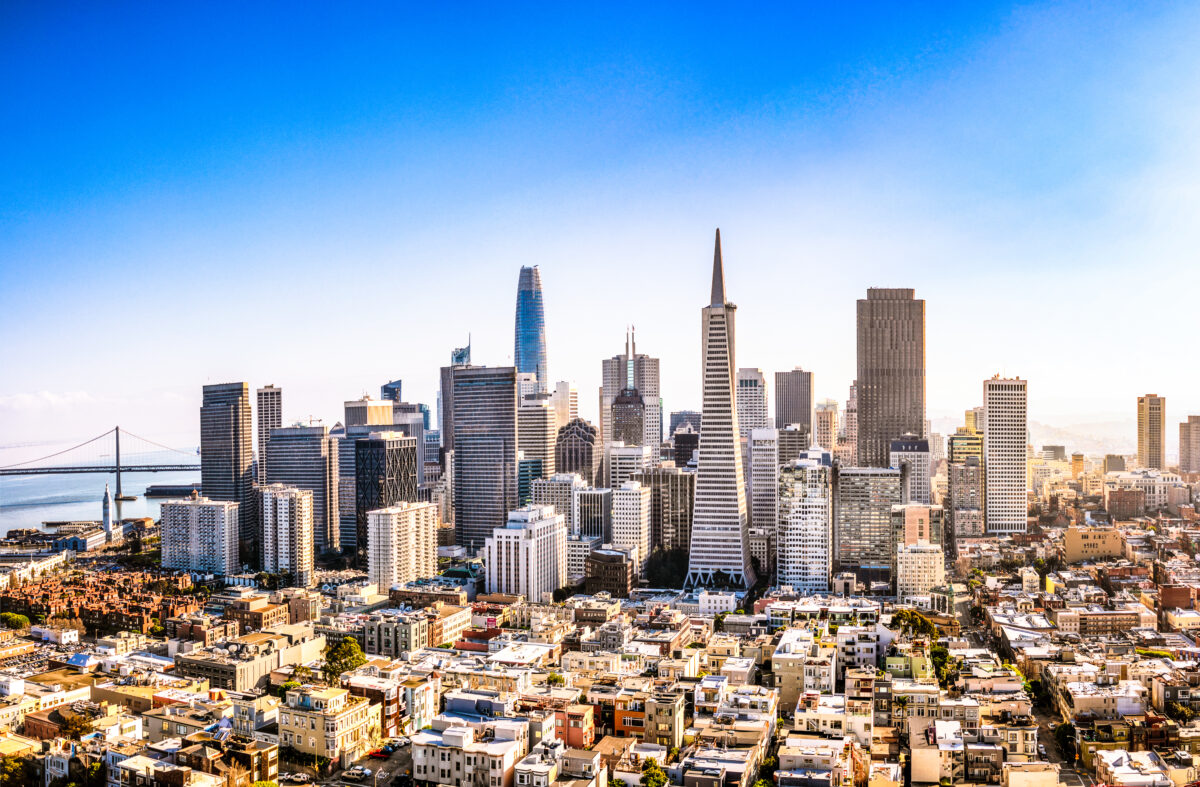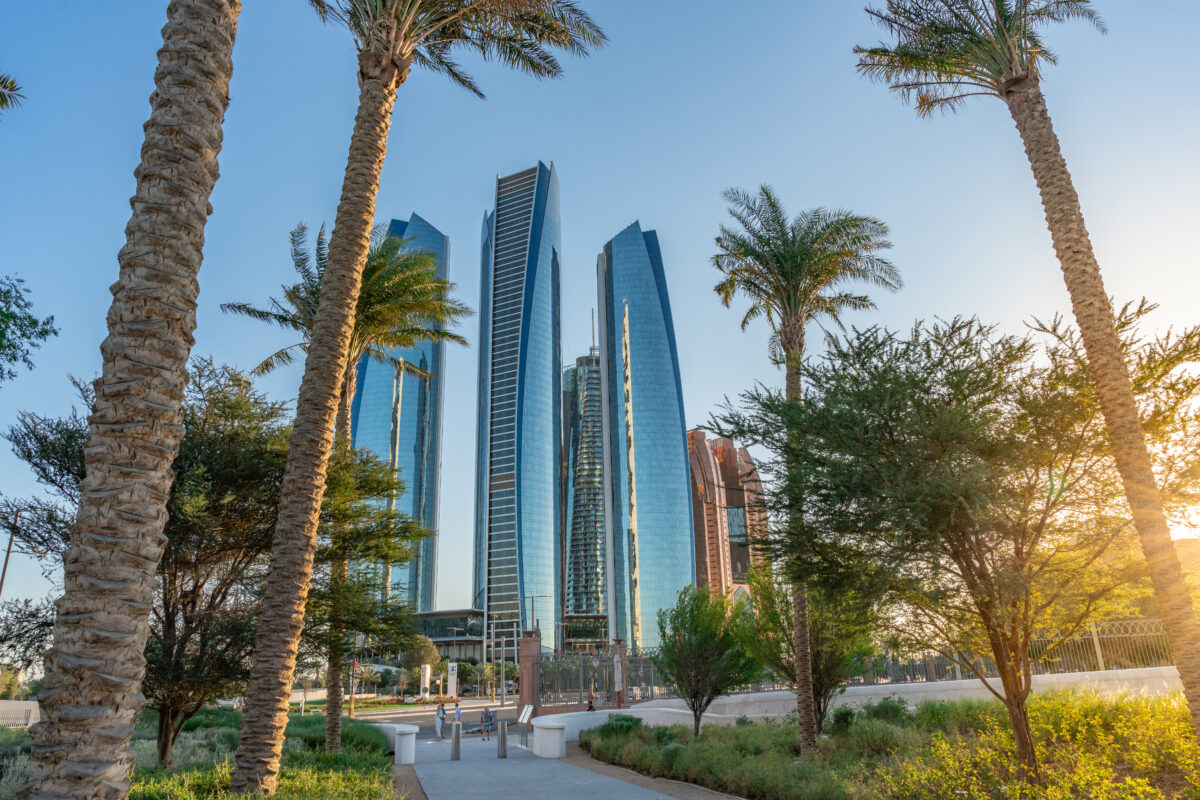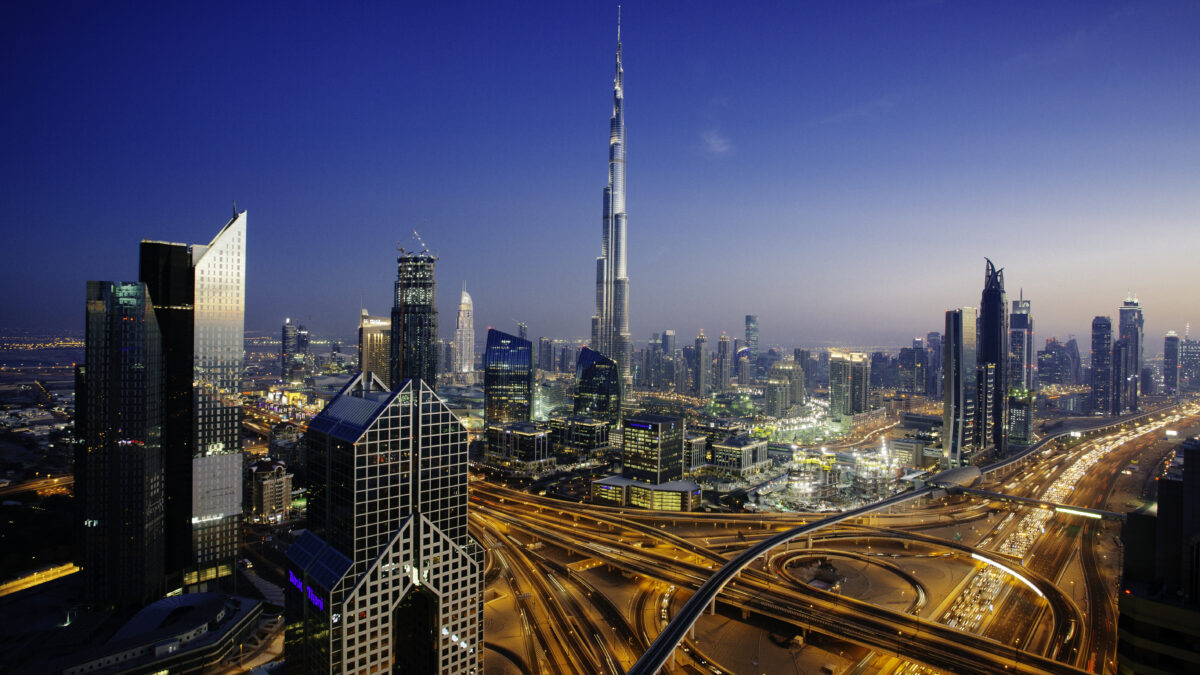The world’s largest economy of the United States and the Gulf Cooperation Council (GCC) region, which consists of the Kingdom of Saudi Arabia, the United Arab Emirates (UAE), Qatar, Bahrain, Kuwait and Oman, have strong partnerships across the fintech, tech and wider financial services sector.
International Trade and Investment Relationships Overview
Trade and investment relations between both regions is strong. For instance, the UAE in 2018, total trade with the U.S. totaled $24.5 billion, with the US exporting $19.5 billion to the UAE. In addition, Saudi Arabia and U.S. goods and services trade totaled around $48.3 billion in 2018. Exports were $22.7 billion; imports were $25.6 billion. Saudi Arabia is currently America’s 22nd largest goods trading partner with $37.7 billion in total (two way) goods trade.

Bahrain, also has a strong trading relationship with the United States. It is the only country in the GCC, besides Oman, to have a free trade agreement with the United States. In 2018, bilateral merchandise trade reached $3 billion, with an additional $1.2 billion of trade in services.
Qatar is currently America’s 57th largest goods trading partner with $6.0 billion in total (two-way) goods trade in 2018. Goods exports totaled $4.4 billion while goods imports totaled $1.6 billion. The U.S. goods trade surplus with Qatar was $2.9 billion in the same year.
Kuwait is the U.S.’s 63rd largest goods trading partner with $5.1 billion in total (two-way) goods trade in 2018. Goods exports totaled $3.0 billion while goods imports totaled $2.1 billion. Finally, Oman and U.S. goods and services trade totaled an estimated $4.4 billion in 2018. Exports were $2.9 billion while imports were $1.5 billion. Like Bahrain, as mentioned previously, Oman also has a free trade agreement with the United States.
In terms of financial services and fintech, the region is home to world renowned clusters, such as Dubai’s Dubai Financial International Centre (DIFC), Abu Dhabi’s Abu Dhabi Global Market (ADGM), and Bahrain’s Bahrain FinTech Bay.
Investment Flows Between Both Regions
Saudi Arabia’s Public Investment Fund (PIF) has been an active investor across the world, which has included being anchor investor in the $100 billion SoftBank Vision Fund. It is not just investments into the US but across the world. For instance, the PIF announced it was investing approximately $1.5 billion in Jio Platforms, India’s leading digital services company, which was subject to customary closing conditions and Indian regulatory approvals. Once PIF’s investment is consummated, this will translate into a 2.32% equity stake in Jio Platforms on a fully diluted basis.
In Saudi Arabia, beyond just PIF, Prince Alwaleed bin Talal has been known to be active in investing across a wide range of companies around the world. In terms of tech and startup portfolio it has included American companies such as Twitter, Snap, and Lyft.

As published in 2019, PIF, which also followed suit from the Qatar Investment Authority and Abu Dhabi’s Mubadala Investment Co., announced it would open an office in San Francisco. This would help open up opportunities in Silicon Valley as they build up technology holdings. GCC countries as a whole are undergoing economic development and diversification transformations, such as with Saudi Vision 2030 and Bahrain Vision 2030, where the economies are looking to diversify and be less oil-reliant and prepare for a future that embraces innovation, entrepreneurship and diversification in economic activity. Historically, the region has been reliant on oil and the majority of their gross domestic product (GDP) has been generated from that. This has allowed for their growth and economic prosperity. However, with the finite resources of oil, coupled with its volatility in the global markets, as well as a current and future environment that is digital and innovative, nation-wide economic strategies are needed to ensure a prosperous future.
Recently, US-based Silver Lake, a global leader in technology investing, and Abu-Dhabi headquartered Mubadala Investment Company, one of the world’s largest global investors, recently announced they are building on their existing relationship by establishing a long-term investment strategy supported by a $2 billion investment from Mubadala. The two firms have already worked collaboratively across investments such as Endeavor, Waymo (Alphabet’s driverless technology company) and India-based Jio Platforms.

The new strategy has a unique 25-year deployment lifecycle designed to invest flexibly across investment structures, geographies and industries, as well as fluidly throughout capital structures and across the spectrum of early to later stage opportunities. Besides forming the new strategy, Mubadala has also acquired a minority equity interest in Silver Lake.
The Dubai Investment Development Agency (Dubai FDI), an agency of Dubai Economy, connected virtually over the summer with potential investors and partners from the U.S. to present opportunities in Dubai’s technology, healthcare and logistics sectors. The technology webinar was hosted by the US Consulate General, Dubai; US Commercial Service, Florida; and Enterprise Florida. Participants were welcomed by the US Consul General in Dubai, Philip Frayne, and the webinar was moderated by Christian Koschil of US Commercial Service of the US Department of Commerce. The initiative was supported by the US-UAE Business Council.
To note, it is not just GCC investment going through US-based fintech and tech companies but also the other way around. Here are a few examples.
First, Atlanta headquarted Village Capital and New York City headquartered MetLife Foundation launched an investment readiness program for Middle East and North Africa (MENA) and Turkey-based startups that are using tech to help low-income individuals and families manage their day-to-day finances, build short- and long-term savings and wealth. The programme is called Finance Forward MENA. Village Capital announced the twelve early-stage fintech startups selected to take part in Finance Forward MENA 2020 – the companies were Khazna Tech, PayMint, Valify Solutions (all three from Egypt), Bilforon (Jordan), Markit (Lebanon), We-Settle (Tunisia), E-Bursum and WorqCompany (both from Turkey), and Buyback Bazaar Technology, Datacultr Fintech Limited, Distichain and HubPay (all four from the UAE).
Second, IBMC Financial Professionals Group, an internationally recognised financial services institution and business consultants, has joined hands with US Gold Currency Inc and Blockfills to bring the world’s first monetary gold-backed digital gold currency to the Gulf Cooperation Council (GCC), Middle East and Africa.

Third, in terms of smart technology, from 2015 to 2018, Dubai attracted a total of $21.6 billion in foreign direct investments (FDI) for artificial intelligence and robotics, which was said to be the highest in the world. Most of the investments came from the European Union (EU) and the United States, which accounted for $5.7 billion and $3.9 billion, respectively.
Fourth, Dubai has established itself as the business hub in MEA. The 500 largest companies in the world by revenue by Fortune magazine (several of the largest companies are American-based) shows two-fifths have offices for MEA operations, whereby 138 out of about 200 have their regional headquarters in Dubai (outnumbering runner-up Johannesburg which has 58 companies). In terms of financial services, American companies with regional offices and/or offices in Dubai include CitiBank, JP Morgan Chase, Bank of America Merrill Lynch, Mastercard and Visa – to name a few. In terms of wider tech this includes Google, Facebook, and Uber, which acquired vehicle for hire company Careem.
Fourth, Mastercard has launched Fintech Express in MEA, a program designed to facilitate emerging fintechs’ launch and expansion in the region. Utilising the power of partnerships and Mastercard’s expertise, technology, and global network, start-ups in the program will be able to focus on innovation that drives the digital economy.
Finally, it is worth mentioning, beyond just fintech, wider tech and financial services, that both regions share strong ties in terms of human capital. There are many American citizens living in the GCC, which like others across the world are lured to the region for its economic opportunities and growth. Many Americans living and working there are in highly-skilled professionals across various industries. For instance, in the UAE, there are around 75,000 American citizens. Meanwhile, particularly in higher education, the United States remains to be a popular destination overall for GCC citizens pursuing their degrees overseas. For instance, in 2019, there were 44,000 Saudis who were studying in the United States.
Both regions have at past and present continue to have strong economic partnerships – not just in fintech, tech and financial services but beyond. This looks to happen in the future as well.



